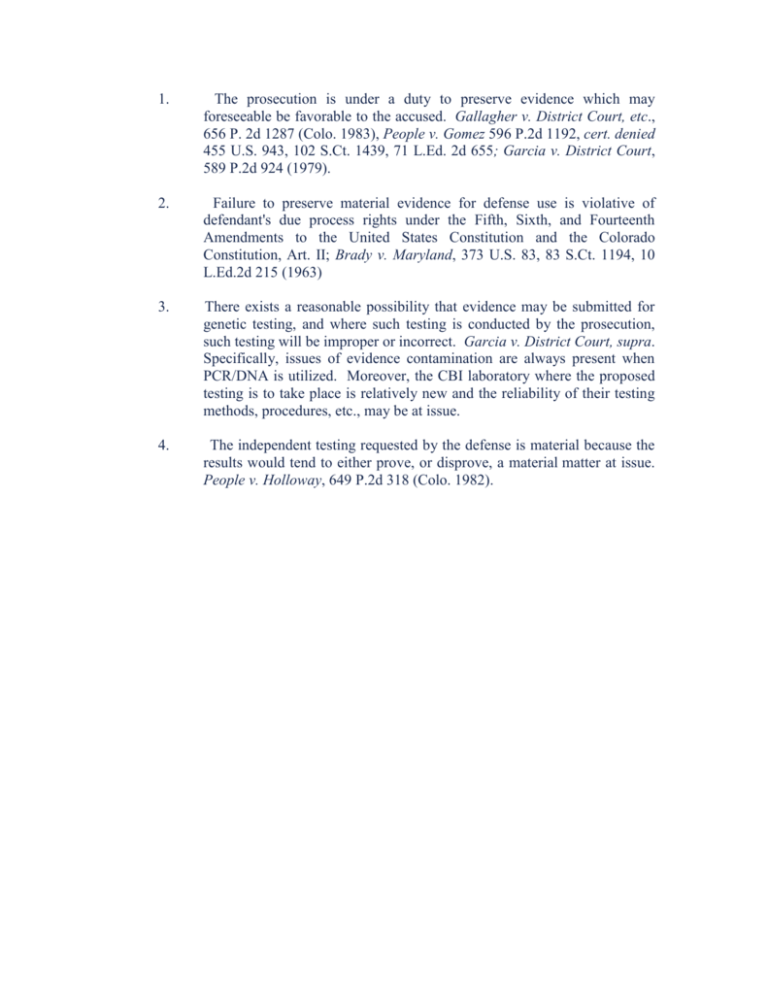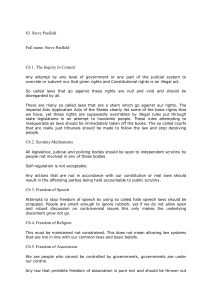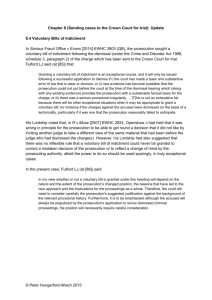Motion to preserve DNA evidence for independent testing
advertisement

1. The prosecution is under a duty to preserve evidence which may foreseeable be favorable to the accused. Gallagher v. District Court, etc., 656 P. 2d 1287 (Colo. 1983), People v. Gomez 596 P.2d 1192, cert. denied 455 U.S. 943, 102 S.Ct. 1439, 71 L.Ed. 2d 655; Garcia v. District Court, 589 P.2d 924 (1979). 2. Failure to preserve material evidence for defense use is violative of defendant's due process rights under the Fifth, Sixth, and Fourteenth Amendments to the United States Constitution and the Colorado Constitution, Art. II; Brady v. Maryland, 373 U.S. 83, 83 S.Ct. 1194, 10 L.Ed.2d 215 (1963) 3. There exists a reasonable possibility that evidence may be submitted for genetic testing, and where such testing is conducted by the prosecution, such testing will be improper or incorrect. Garcia v. District Court, supra. Specifically, issues of evidence contamination are always present when PCR/DNA is utilized. Moreover, the CBI laboratory where the proposed testing is to take place is relatively new and the reliability of their testing methods, procedures, etc., may be at issue. 4. The independent testing requested by the defense is material because the results would tend to either prove, or disprove, a material matter at issue. People v. Holloway, 649 P.2d 318 (Colo. 1982).











